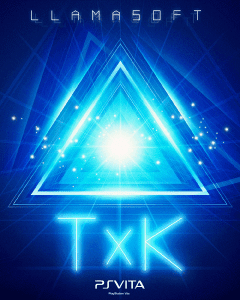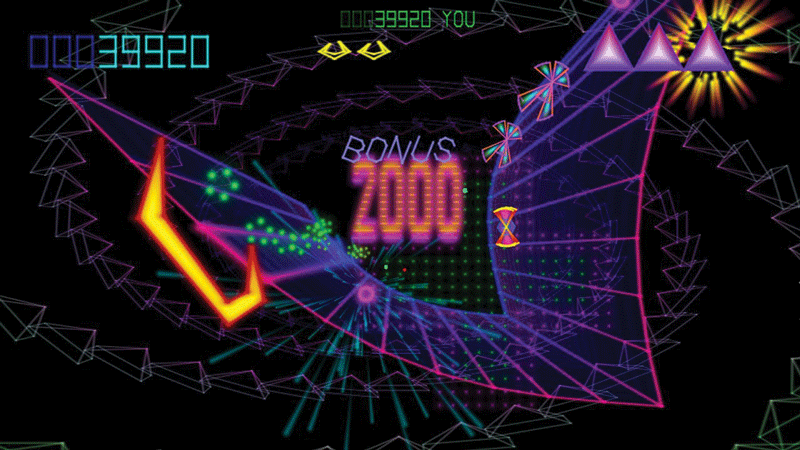
 TxK marks the return of seminal designer Jeff Minter whose career spans over 30 years. The recurring themes in Minter’s works are frenetic action and psychedelic experiences. All these abound in TxK — a new arcade shooter for PS Vita.
TxK marks the return of seminal designer Jeff Minter whose career spans over 30 years. The recurring themes in Minter’s works are frenetic action and psychedelic experiences. All these abound in TxK — a new arcade shooter for PS Vita.
The game starts off with the player in a wireframe setting being attacked by what looks like an army of angry ribbons. Soon you will discover that you are actually an oddly shaped spider(ish) creature that is crawling at extremely high velocity. Once your attacking abilities have been mastered, the environment will constantly reshape around you. Before you know it, you will find yourself up-side down fighting enemies from every direction.
It is an exercise in minimalism; so much is achieved with few details. It is up to the player to make sense of the bizarre juxtapositions of graphics and sounds. Thanks to its unique style, TxK shines.
This article forms part of The Gaming Issue





Comments are closed for this article!